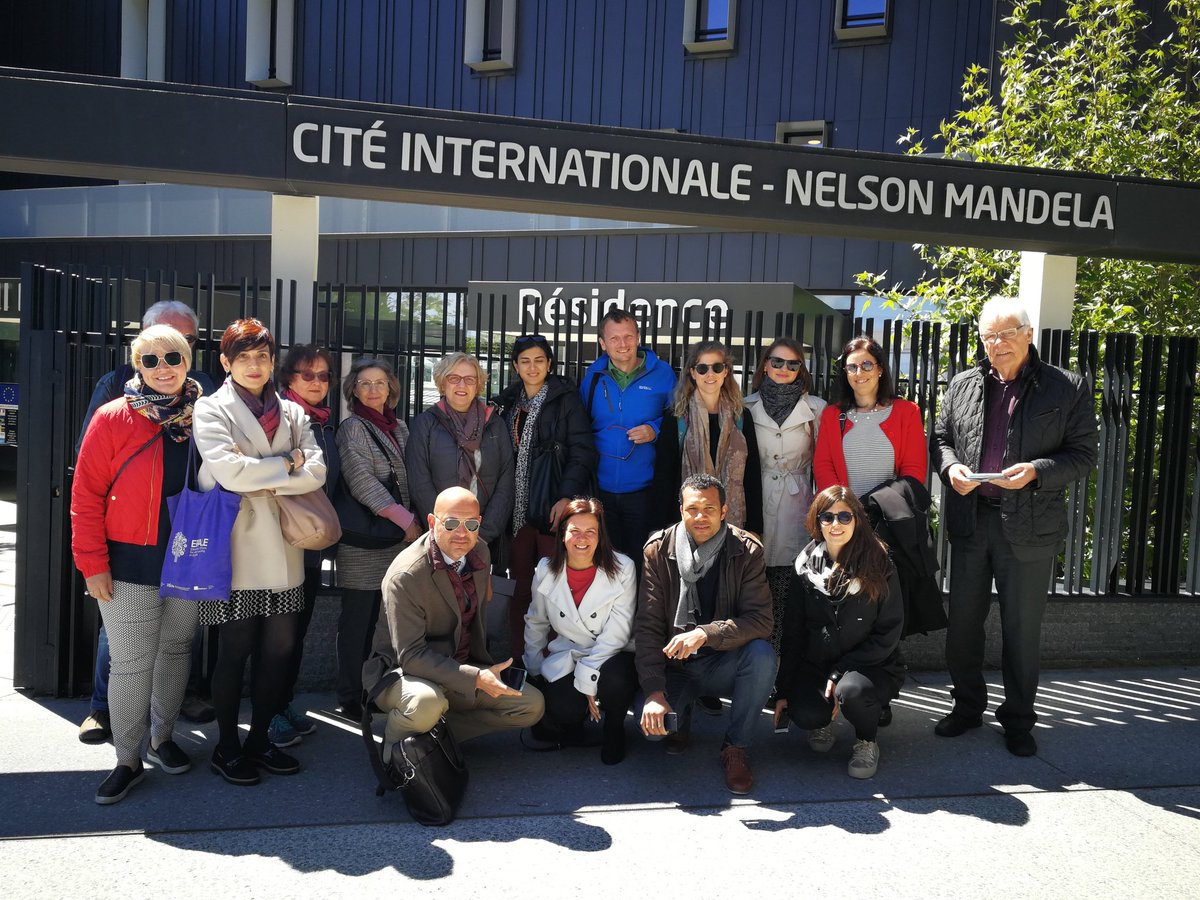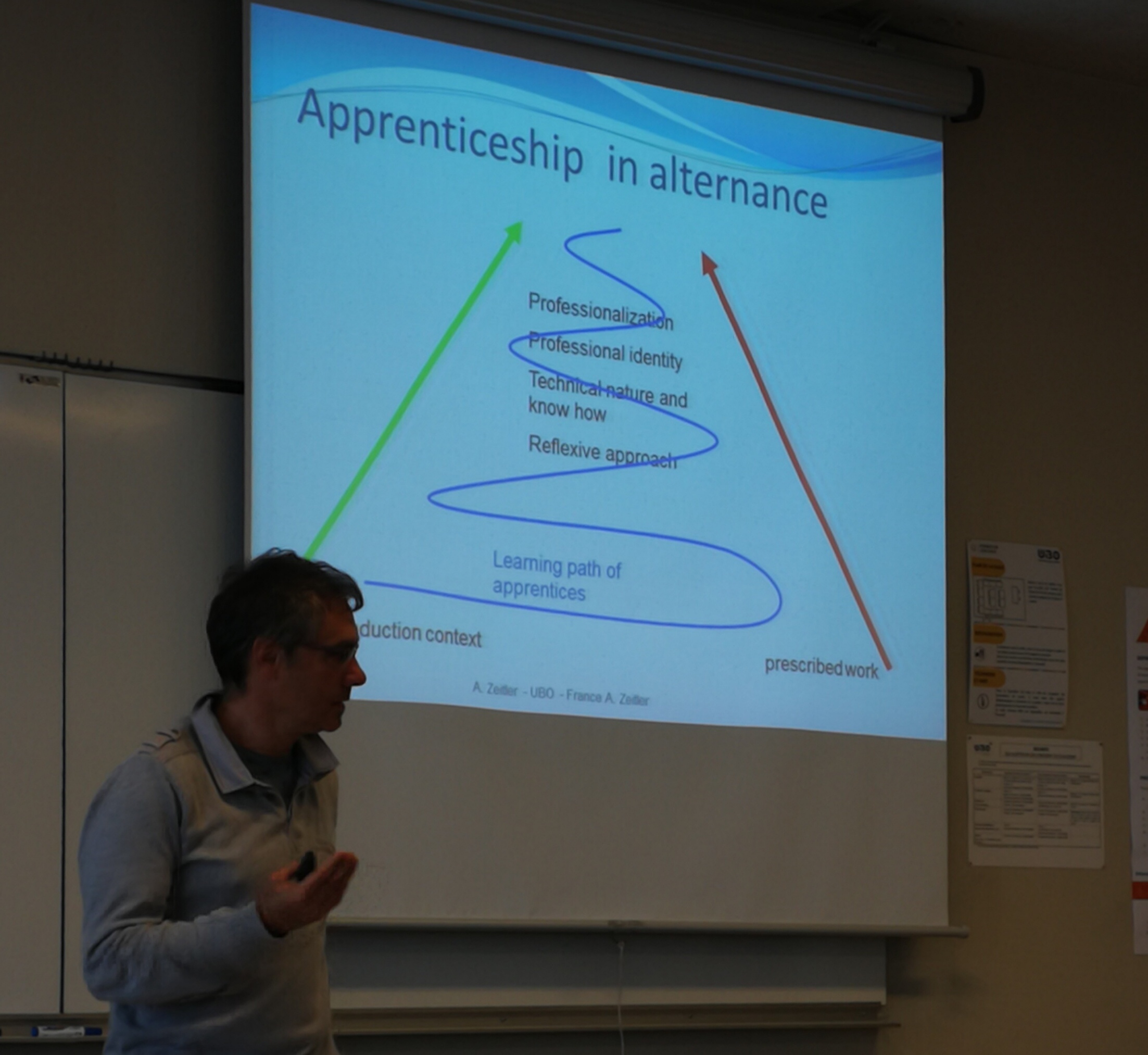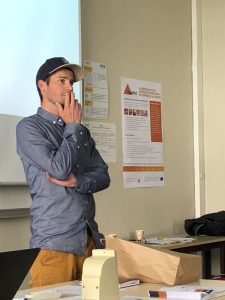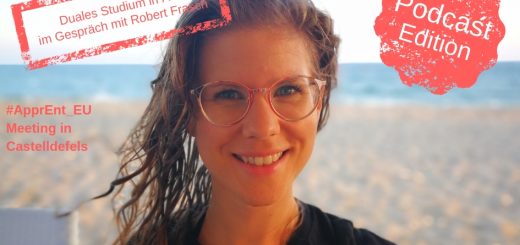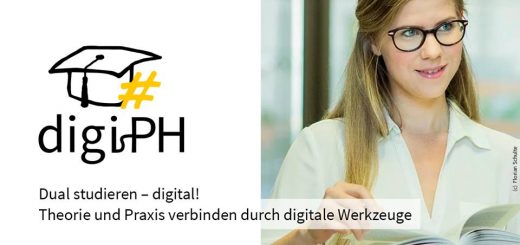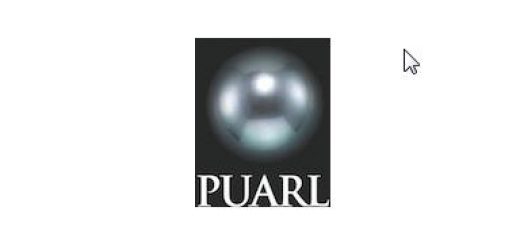The ApprEnt Field Visit in Brest – Learning from Good Practice at UBO
On 14th and 15th of May 2018 the ApprEnt-Team met in Brest (France) to…
- discuss the current project outcomes & identify next steps
- and learn from a good practice example how to implement a dual study program (or higher apprenticeship program) at the University of Brest.
During the last weeks the ApprEnt team has been collecting good practice of dual study programs from all over Europe. We discussed common challenges:
- not all country already have established dual study programs, fulfilling all characteristics of higher apprenticeship
- the context of the case studies is very important – also for the synthesis of all case studies in the end. There is no recipe solution for all countries and all companies, but rather specific problems, contexts and according solutions. The pattern approach could be a way how to capture good practice.
Next steps are now to finish the good practice collection and to conduct a learning workshop/focus group until Mid June. In Austria, Robert Frasch and I will hold the learning workshop on May 28, 2018 in Vienna. During the learning workshop, we want to share good practice examples from France, the UK and also from Austria. We invite all people interested in dual study programs to come and to discuss with us. It will be the first of a series of events in Austria during the project, dedicated to dual study programs in Austria. We aim to establish a community of practice and also created the Facebook Discussion Group “Dual studieren in Österreich”.
Good Practice Example in Brest
University is like teaching a child how to swim, but never put it in the water. The teacher assesses the movements, the breathing,… At the end they finally let them into the water and you are surprised they cannot swim. #ApprEnt_EU #highereducation #erasmusplus #edchatEU
— Isabell Grundschober (@IsabellGru) 15. Mai 2018
André Zeitler, Expert in Higher Apprenticeships at UBO came up with the metaphor above. He underlines how important the practical experience is, it needs both: Practice and theory. Furthermore, he covered up a common misunderstanding: The notion, that theory can be applied in practice. Apprentices learn theories at universities and believe they can directly apply it at work, but it doesn’t work out like they thought. At university, theories and problem-solving are usually applied on standard to standard-cases but in the work-reality in their companies these solutions from theory do not work out. It is a non-standardized environment. This often leads to frustrated apprentices/students, they believe either…
- the theory is wrong or…
- …something is not right in their working environments.
None of these two assumptions are right. The theory is not wrong and it doesn’t mean something is wrong in the working environment. The working reality is simply more complex than a standard problem in the lectures. There is no recipe how to solve these kind of complex “real life” problems. New solutions need to be created. Rules from theory can help, but solutions need to be adapted to the complex world outside university.
Theory and Practice – Insights
At this point I would like to add something to what Zeitler said. It fits pretty much perfectly to what Polanyi stated about rules:
„Rules of art can be useful, but they do not determine the practice of an art; they are maxims, which can serve as a guide to an art only if they can be integrated into the practical knowledge of the art. They cannot replace this knowledge.“ (Polanyi 2013, p. 50)
In August 2016 I wrote a blogpost connected to this problem: “Rules and the practice of skills.” Check it out to get more information about how rules of theory and practice relate to each other.
Dual Studies at UBO
UBO ist working closely together with companies in their dual study programs. Once a year there is a conference between representatives from companies and those from University of Brest and decide if there are updates and changes needed in the curriculum. Close cooperation is crucial for a high quality study program. There are mentors both, on the company side and on the university side for each student/apprentice. Once a year, the academic mentor visits the company of the student/apprentice. Students regularly present what they have learned in practice.
The apprenticeship is not a one way process, e.g. from university to student and to company. It is also going the other way around. The department of the dual study program is responsible for sense-making between the world of theory and the world of practice. Mentors help apprentices to identify problems, to make own choices, in the formalization of practice.
They make use of reflective approaches and debriefing methods. Mentors from university as well as from companies presented their approaches during the afternoon session of the field visit. Especially the mentor from the company Fiiish, Romain Le Bouffo, underlined the importance of the personal learning diary aka black note-book for apprentices. It helps the apprentice in several ways:
- learning about “savoir d’etre” and “savoir de faire” – values are important and can be captured
- Capturing personal thoughts, the processes, the way Fiiish works
This reminds me very much of the ePortfolio approach, which I suggest to use for reflection of work-based learning. At the Online Conference “DigiPH” in April 2018 I talked about how the ePortfolio can support dual study programs. You can check out my presentation in German language on Youtube in my Blogpost “Dual studieren – digital. Theorie und Praxis verbinden durch digitale Werkezuge”
The Role of the Validation of Informal and Non-Formal Learning
What became obvious during the field visit was, that the situation in France is very specific. The validation of informal and non-formal learning (or experiential learning) has been in place for several years now. In France, everybody has the right to go through a validation procedure at university. Informal learning at the workplace is valued. A dual study program is nothing else but validating current informal learning at the workplace. This also became obvious during the guest lecture by Jon Talbot from the University of Chester (UK)
Higher Apprenticeships – the Chester Way
At the University of Chester they have a work-based study program, which allows both, the validation of past and of current learning experiences. The British government started to financially fund higher apprenticeships and more and more companies in the UK are now looking for higher apprenticeship/dual study programs at universities. The higher apprenticeship programs at Chester are based on standards set by professional bodies. In my German blogpost “Validierung von früherem Lernen – 2 Good Practice Beispiele” I explain more detailed how work-based learning in Chester is implemented and validated. I wrote the blogpost as a summary of a presentation I held at the Bologna Day in Austria in March 2018.
Lessons Learned
The field visit in Brest was a great experience for me, it cleared up the next steps in the project, gave me new ideas and input, especially also for my presentation at the VPET18 Congress – the international congress for vocational education and training in Winterthur this June. Keeping you posted!
Twitter Story
Last, but not least, here the twitter collection of the field visit, a lot of pictures, nice quotes and much more!
